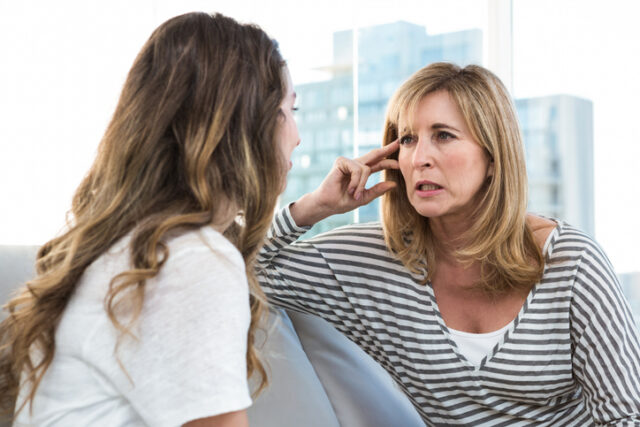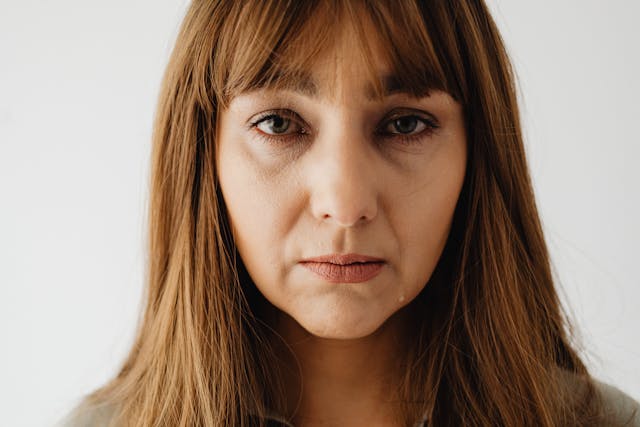Walking away from a toxic family is one of the hardest decisions a person can make.

They’re your flesh and blood, and you know that you’re meant to stick together through thick and thin. However, allowing them to stay in your life is slowly destroying you, and you know you have to cut them off for your own sake. Even when it’s the healthiest choice, the emotional weight of leaving can be overwhelming. Here are 15 reasons why it hurts so deeply—and why those feelings are valid.
1. You’re breaking lifelong bonds.

Family ties often feel unbreakable, even when they’re toxic. Leaving means severing connections you’ve had since birth, which can feel unnatural and deeply unsettling. It’s a painful reminder that shared history doesn’t always guarantee a healthy relationship.
2. You mourn the family you wished you had.

Walking away often brings up grief—not just for what you’re losing, but for the ideal family you hoped they could be. It’s hard to let go of the fantasy of a loving, supportive family that may never materialise. The loss can feel just as real as losing someone physically.
3. Society romanticises family.

The “family is everything” narrative is everywhere, making it even harder to step away. It can feel isolating to make a choice that goes against cultural norms and expectations. Being under so much pressure often leads to guilt, even when you know leaving is the right decision.
4. You feel responsible for them.

In toxic dynamics, you might feel like it’s your job to keep the peace or fix their problems. Walking away means releasing that responsibility, which can leave you feeling guilty or selfish, even though it’s not your burden to carry.
5. There’s pressure to forgive and forget.

Well-meaning advice like “but they’re still your family” can invalidate your experiences and make you question your decision. Forgiveness doesn’t always mean reconciliation, and letting go doesn’t mean forgetting the pain they caused. The stress can make the process even more emotionally draining.
6. Toxic families often manipulate your emotions.

Gaslighting, guilt-tripping, and other manipulative tactics can make you second-guess your feelings and choices. Even after leaving, their influence might linger in your mind, making it hard to feel confident in your decision. Breaking free requires untangling years of emotional conditioning.
7. You may lose extended family connections.

Leaving a toxic family often means losing contact with other relatives who aren’t directly involved. All that collateral damage can leave you feeling even more isolated, especially if those connections were important to you. It’s a painful trade-off, but sometimes necessary for your well-being.
8. You question your own worth.

Toxic families often eat away at your self-esteem, making you feel like you’re the problem. Leaving can stir up old insecurities and doubts about whether you’re doing the right thing. Rebuilding your self-worth takes time, but it’s an essential part of healing.
9. You might feel judged by other people.

Not everyone will understand your decision, and some might even criticise it. Facing judgment from friends, coworkers, or even strangers can add another layer of pain to an already difficult process. Explaining yourself can feel exhausting, but you don’t owe anyone an explanation.
10. You lose a sense of identity.

For better or worse, family often shapes who we are. Walking away means redefining yourself outside of that framework, which can feel disorienting. While this is an opportunity to grow, the transition can be emotionally taxing as you find your footing.
11. Holidays and milestones become complicated.

Family gatherings like Christmas or weddings can bring up feelings of loneliness or guilt when you’re no longer in contact. Watching other people celebrate with their families might stir up sadness, even if you know staying away is best for you. These moments highlight what you’ve left behind, even if it was toxic.
12. You miss the good moments.

No family is entirely bad, and leaving means letting go of the good times too. Memories of laughter, shared traditions, or supportive moments can make you question your choice. It’s important to remember that loving some parts of your family doesn’t erase the harm they caused.
13. You might struggle with guilt.

The idea of “abandoning” your family, even when they’ve hurt you, can weigh heavily on your conscience. Toxic families often weaponise this guilt, making it harder to move forward. Recognising that putting yourself first isn’t selfish can help ease these feelings over time.
14. You fear being alone.

Family is often seen as a built-in support system, and walking away can feel like stepping into isolation. Even if the support wasn’t genuine, the idea of losing it can be terrifying. Building a chosen family of friends and supportive people takes time but can be deeply rewarding.
15. Healing takes time.

Leaving doesn’t mean instant relief—it’s just the beginning of the healing process. Processing the pain, rebuilding trust, and unlearning toxic patterns can take years. While it’s a hard road, the freedom and peace that come with it make the journey worthwhile.




